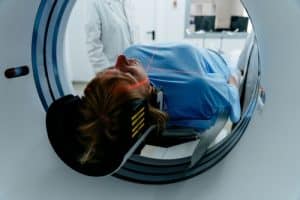What is Cancer Prevention?
Cancer prevention entails active measures taken to reduce the chances of getting cancer. So, prevention can include things you change in your daily life and things you would avoid to prevent cancer.

-
Vaccines
Many infections can lead to the development of cancer. These include Human Papilloma Virus (HPV) and Hepatitis B and C.
HPV can cause cancer in the reproductive organs and the oropharynx of both males and females. However, HPV is a prevalent infection and does not cause cancer every time. The body’s immune system attempts to suppress the infection.
However, some infections can lead to cancer. The HPV vaccine helps prevent HPV infections. It is most effective for boys and girls between ages 9 and 12.
Hepatitis B and C (HBV and HCV) can both cause cancer of the liver or bile duct. The chance of cancer development is higher if infected by both HBV and HCV. These infections can cause scarring of the liver, which can also contribute to liver cancer development. A vaccine for HBV helps prevent Hepatitis B infections and is offered to teenagers across Canada.
It is encouraged to get vaccinated for HBV before traveling to high-risk areas like Africa and Asia. No HCV vaccine exists, but HCV can be prevented by not sharing needles or personal care tools (razors, nail clippers, etc.) and practicing safe sex.
-
Diet and Physical Activity to Cancer Prevention
Diabetes and obesity can increase your risk of developing cancer. To prevent this, following a healthy diet and watching your weight is important. Obesity leads to an increase in hormones in the body that contribute to cell production. This can lead to the development of prostate, breast, uterine, colon, gallbladder, liver and kidney cancers.
Diabetes and cancer both share similar risk factors, however, both can be prevented through a healthy diet and daily physical activity.
-
Lifestyle
To prevent melanoma, also known as skin cancer, protect your skin from the sun by wearing sunscreen and covering up when exposed to sunlight. This approach is the best way to prevent sun damage and reduce the risk of skin cancer.
Avoid smoking and using tobacco to prevent the development of lung cancer, esophageal cancer, and stomach cancer. By not consuming tobacco, you significantly lower the risk of these cancers.
Limit your alcohol consumption to prevent liver, pancreas, and brain cancers. Reducing alcohol intake helps to decrease the risk of developing cancers associated with alcohol use.
-
Screening
There are various ways to screen for cancer, the Whole Body MRI is one of them. So, speak to your doctor about what options work best for you.
Works
Cancer Prevention Overview (PDQ®)–Patient Version – NCI
Healthy Choices to Lower Your Cancer Risk | CDC





